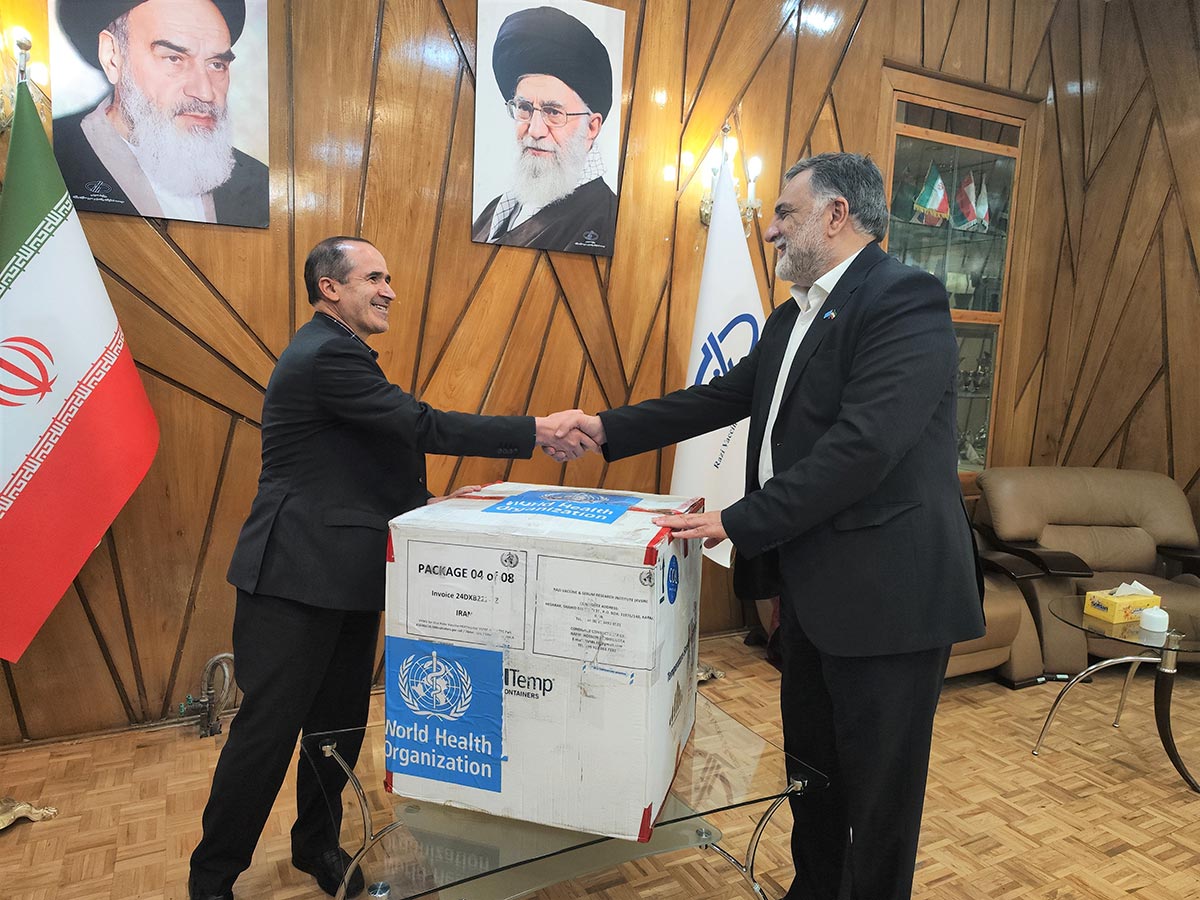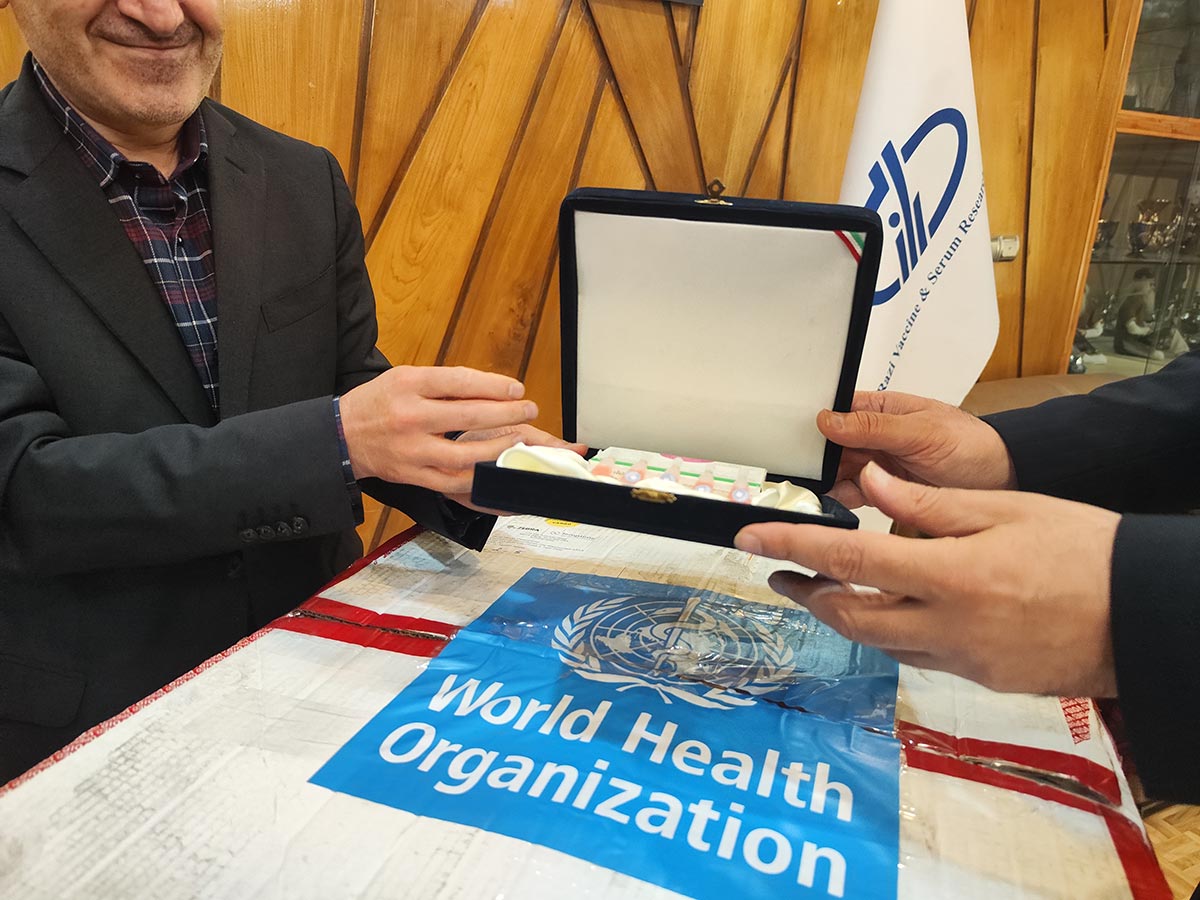 27 August 2024, Karaj, Islamic Republic of Iran – The World Health Organization (WHO) facilitated the procurement 2.79 million vaccine vial monitors (VVMs) for the Islamic Republic of Iran’s oral polio vaccine programme. The acquisition, funded by the Razi Vaccine and Serum Research Institute, will significantly strengthen the Islamic Republic of Iran’s national immunization efforts.
27 August 2024, Karaj, Islamic Republic of Iran – The World Health Organization (WHO) facilitated the procurement 2.79 million vaccine vial monitors (VVMs) for the Islamic Republic of Iran’s oral polio vaccine programme. The acquisition, funded by the Razi Vaccine and Serum Research Institute, will significantly strengthen the Islamic Republic of Iran’s national immunization efforts.
The shipment of VVMs, temperature-sensitive devices crucial for vaccine storage and transportation, arrived through Imam Khomeini International Airport and was jointly received by the Razi Institute and the WHO Country Office in the Islamic Republic of Iran.
Dr Ali Es-haghi, Director General of the Razi Institute, which is affiliated to the Government of the Islamic Republic of Iran, said the collaborative achievement was the result of concerted efforts on multiple levels. The Razi Institute, the Ministry of Health and Medical Education, the Food and Drug Administration, the Ministry of Industry, Mine and Trade, the WHO Country Office in the Islamic Republic of Iran, WHO Headquarters and the WHO Regional Office for the Eastern Mediterranean had worked for nearly 2 years on the complex procurement process.
 The process began in earnest in November 2022, following a request from the Razi Institute. Dr Hamid Jafari, Polio Director, Polio Eradication at the Regional Office for the Eastern Mediterranean, had conducted a mission to Iran in August 2022, laying the groundwork for the procurement.
The process began in earnest in November 2022, following a request from the Razi Institute. Dr Hamid Jafari, Polio Director, Polio Eradication at the Regional Office for the Eastern Mediterranean, had conducted a mission to Iran in August 2022, laying the groundwork for the procurement.
In December 2022, a memorandum of understanding (MOU) was signed between the Razi Institute and the WHO country office, formalizing the purchase of the essential supplies for use inside the country. The MOU has been reviewed thoroughly for technical, legal, and financial aspects by three levels of the WHO.
VVMs play a pivotal role in maintaining vaccine potency and effectiveness. Placed on vaccine vials, the devices ensure vaccines remain within their optimal temperature range during storage and transportation. Safeguarding the health of children, they contribute to the global effort to eradicate polio.
“Securing these VVMs is a crucial step in ensuring the safety and efficacy of vaccines and reflects our shared commitment to improving health outcomes for everyone in the world,” said Dr Syed Jaffar Hussain, WHO Representative and Head of Mission to the Islamic Republic of Iran.
The technology transfer underscores WHO’s unwavering dedication to supporting the Islamic Republic of Iran’s national immunization programme. By prioritizing the safe storage and transport of vaccines, the VVMs will protect children from preventable diseases and further WHO’s core mission to secure a healthier future for all.




